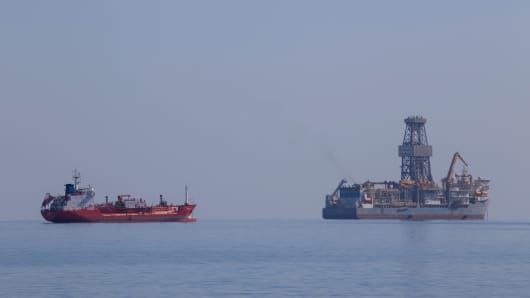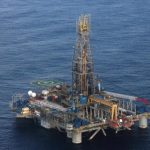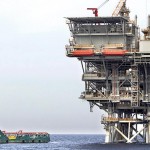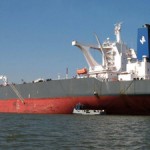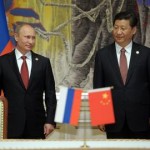A multibillion-dollar natural gas boom may reunify Cyprus
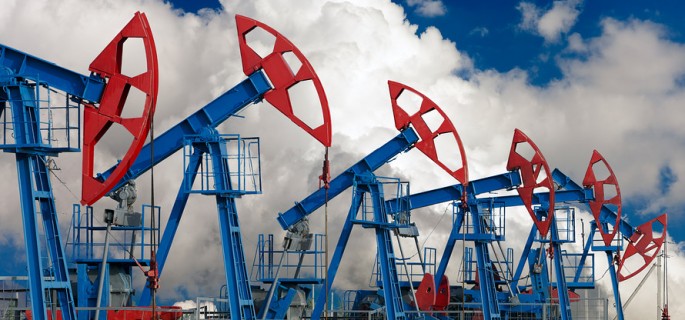
A potential energy boom in Cyprus could spur a deal to reunify the ethnically-divided island after more than 40 years. A breakthrough may come at a United Nations-brokered multilateral summit in Geneva this week.
The island nation has discovered offshore gas with estimated reserves of over 4 trillion cubic feet valued at over $50 billion. Last month, global energy giants including ExxonMobil, Total of France, Qatar Petroleum and Eni of Italy won licenses to explore and drill for oil and gas off the southern coast of Cyrpus.
An accord has never been closer, as the European Union eyes Cyprus as a future energy hub that would give Turkey and Europe access to gas deposits discovered in the eastern Mediterranean. This would allow Turkey and Europe to reduce reliance on Russia for the continent’s energy needs.
Cyprus has been divided since 1974 when Turkey invaded the north. The island was effectively partitioned with the northern third inhabited by Turkish Cypriots and the southern two-thirds by Greek Cypriots. The UN has overseen a ceasefire line between the south and Turkish-held north of the island in the four decades since.
The country’s latest push to attract interest in its energy sector comes as Turkey and Israel discuss a pipeline to import Israeli natural gas that would pass through Cypriot waters. Turkey’s goal is to reduce its reliance on Russian energy supplies. Officials in Nicosia, the capital city in the Republic of Cyprus, have said they will block the pipeline if the island stays divided. According to experts, Turkey’s desire for Israeli gas may be the impetus needed to finally broker a resolution.
A Cyprus deal has drawn the personal interest of top U.S. and European diplomats including Vice President Joe Biden. It would be a high-profile win in Europe for the outgoing administration.
A reason for optimism
Although the Republic of Cyprus, which is a member of the EU, is recognized as the sole legitimate state, 36 percent of the island in the north is the self-declared Turkish Republic of Northern Cyprus. It is occupied by Turkish armed forces and recognized as a state only by Turkey.
The reason for optimism is that the two leaders, the President of Cyprus Nicos Anastasiades and the Turkish Cypriot leader Mustafa Akinci, are committed to a settlement and have been discussing a reunification plan since May 2015.
The current plan involves the establishment of two constituent states within an overarching federal framework on the island. The two states would run most of the island’s affairs.
Any deal would have to go to a referendum.
According to experts the growing energy importance of Cyprus has offered a great incentive for reconciliation.
The East Mediterranean island is located in the Levant basin, where both Israel and Egypt have made some of the world’s biggest natural gas discoveries in the past decade. It’s in this area that Cyprus found an estimated 4.5 trillion cubic feet of natural gas in one prospect in late 2011.
Last year, the most pronounced interest was for an offshore sea block in close proximity to the Zohr field offshore Egypt, where Eni reported the discovery of an estimated 30 trillion cubic feet of natural gas in 2015.
Over the last five years, the gas reserves in the waters around Cyprus have grabbed the attention of the international community, mainly from Europe and the United States. European Union countries that import natural gas, mostly from Russia, have been looking for alternative sources due to Russia’s use of Gazprom, the natural gas company of Russia, as a weapon in the Ukrainian crisis.
Not surprisingly, U.S. President Barack Obama recently argued that a just and comprehensive solution for Cyprus would have historic and far-reaching impact as it would improve economic opportunities for all the people of Cyprus and enhance energy security in the Mediterranean region and beyond.
Stumbling blocks remain
Last month, Cyprus President Anastasiades, Greek Prime Minister Alexis Tsipras and the Israeli Prime Minister Benjamin Netanyahu held a trilateral summit in Jerusalem to boost energy cooperation. The focus of the meeting was the East Med pipeline that would transport gas from the Israeli and Cyprus offshore gas fields through Greece to other parts of Europe.
For Turkish President Recep Tayyip Erdogan, a deal with Israel to import oil and gas is well timed. His ties with the EU have become increasingly strained since his wide-ranging purge of perceived participants in July’s attempted military coup. Erdogan also has a strained relationship with Russia due to stepped up military action in Syria. Turkey’s economy is vulnerable, since it imports over 55 percent of its gas from Russia, according to the Turkish Energy Market Regulatory Authority.
According to policy experts at the Begin-Sadat Center for Strategic Studies, an independent, non-partisan Middle Eastern and global strategic affairs think tank, Israel should rule out building a natural gas pipeline to Islamist Turkey because of the political risk involved and should instead consider using LNG technology for export through Cyprus. Although this would be expensive, it would be a less risky and more durable option over the long term.
But huge challenges remain for reunification to become a reality.
Euthymius Petrou, a former advisor to the Greek Ministry of Defense and expert on Turkish affairs told CNBC that Turkey will play hardball on its sovereignty guarantees over Cyprus. “The Turkish President Erdogan is more inclined to take a hard line on Cyprus to bolster his standing in Turkey as he faces many internal problems,” he said.
One big issue is to untangle questions on property and territory exchanges. Another thorny issue is how Turkey will withdraw its estimated 30,000 to 40,000 troops still in Cyprus, and relinquish its role as a security guarantor to safeguard Turkish Cypriots. The withdrawal of Turkish troops stationed on the island is a precondition by the Greek Cypriots for any settlement.
The two Cypriot leaders will present their proposals on Jan. 11 for what territory would form the Greek-Cypriot and Turkish-Cypriot regions in a planned bi-zonal federation.
Source: CNBC









